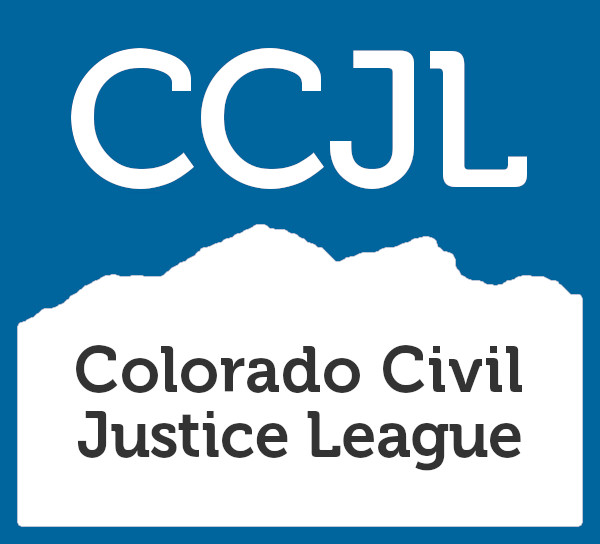From The Denver Post:
By Mark Hillman
Last year’s lawsuit binge by the Colorado legislature is only getting worse.
Rather than use the executive branch to enforce laws (like we learned in school), legislators continue to write bills using private lawsuits for enforcement. That means our laws are enforced not by an agency with experience handling a specific type of claim. Instead, enforcement lawsuits encourage anyone who believes she was wronged to file a lawsuit against the supposed offender.
This is poor public policy because billboard lawyers have little accountability and judges are left to sort out all manner of claims from employment disputes to environmental regulations. While executive branch “bureaucrats” may make mistakes, at least they are accountable to the governor who appointed them and to the legislature that controls their purse strings.
In 2023, a record 25 bills used private lawsuit enforcement, according to Common Sense Institute. As of March 14, at least 37 such bills have been introduced this year.
Yes, in rare instances lawsuit enforcement may be appropriate. For example, when citizens’ constitutional rights are being violated by a government agency or when no other means of enforcement exists.
However, lawsuits should always be a last resort – not the first notice of a problem.
When the defendant is a governmental entity expected to enforce the law equally, then appropriate relief could include an injunction against the unlawful practice and recovery of attorney fees and costs (“fee-shifting”) necessary to cause that agency to uphold the law.
When the defendant is a private business or individual, fee-shifting should not be one-way (only in favor of the plaintiff) nor automatic. After all, civil cases are decided based upon a preponderance of evidence (“more likely that not”). In a private-party dispute, neither side should be required to pay the other side’s legal fees just because it lost a close-call decision. Fee-shifting should only occur based upon heightened criteria – such as when one party brings a frivolous action or when its behavior is particularly egregious.
Instead, legislators are all too fond of automatically mandating fee-shifting in favor the plaintiffs. For lawsuit defendants, this is a lose-lose situation. If they “win,” they still must pay their own legal costs, but if they lose, they have to pay their own attorney and the attorney who sued them. That creates tremendous pressure to settle the lawsuit just to make it go away before attorney fees skyrocket. Billboard lawyers relish that leverage.
Another misuse of lawsuit enforcement is creation of “magic damages” by arbitrarily assigning a dollar value that plaintiffs can claim, not because they have suffered actual damages but because the legislature decrees these damages into existence.
Two particularly egregious examples this year are House Bill 1260 (which allows an employee to sue for $10,000 per violation for the supposed offense of being subjected to political or religious speech) and HB 1175 (which orders the court to award at least $30,000 to a plaintiff that sues to stop the private sale of a rental property).
On the other hand, a few bills use lawsuit enforcement in a much more modest way:
HB 1147 (use of deepfake images in campaigns) allows for an injunction, doesn’t create magic damages, and the “general or special damages” allowed are difficult to prove due to First Amendment scrutiny.
HB 1261 (human trafficking) doesn’t create magic damages or mandate fee-shifting. Although it allows non-party lawsuits, litigants are required to first submit their case to the Attorney General and are not enriched by the lawsuit.
Senate Bill 129 (requiring public agencies to protect private data) is a good example of using lawsuit enforcement for the specific purpose of holding a government agency accountable for protecting the rights of citizens and doesn’t mandate fee-shifting.
However, the best example is HB 1130 (privacy of biometric data) which does not rely on lawsuit enforcement at all and has bipartisan sponsorship.
Beyond simple lawsuit enforcement, several of this year’s bills invoke the Colorado Consumer Protection Act (CCPA) by creating new “deceptive trade practices.” CCPA claims are not simple tort lawsuits. CCPA claims must show a pattern of fraudulent behavior, not a single dispute. When that pattern is shown, the plaintiff is entitled to treble damages plus recovery of attorney fees.
Too many of this year’s bill simply declare a disfavored behavior to be a deceptive trade practice in order to enable plaintiffs to claim treble damages.
The worst bill, House Bill 1014, renders the public impact test meaningless, making it easier for any consumer dispute to assert a CCPA claim. CCPA already defines no less than 82 deceptive trade practices, so legislators should view any new deceptive trade practices with skepticism.
Former Senate Majority Leader and State Treasurer Mark Hillman is executive director of Colorado Civil Justice League (www.ccjl.org).
